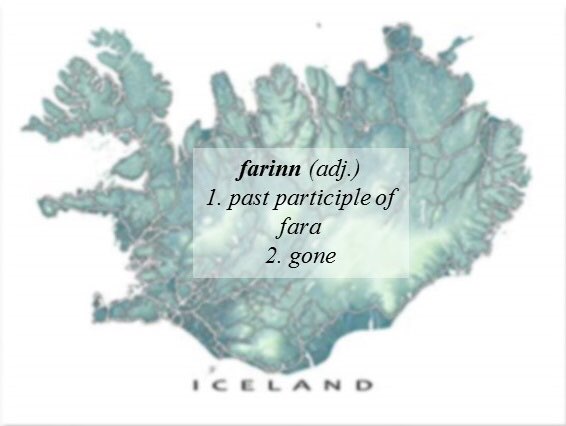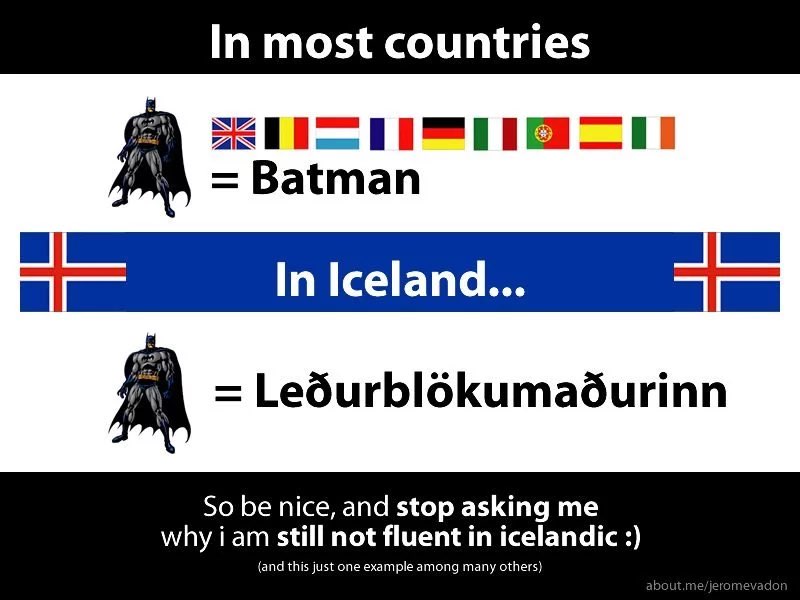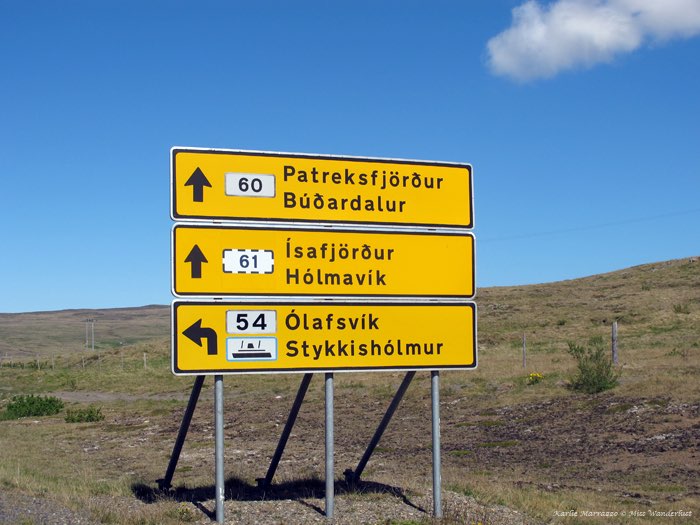Have you ever imagined a world without culture, without history, without identity? This is currently happening in Iceland. Being one of the original Viking languages, the Icelandic language preserves many ancient elements, with barely any borrowed words from other languages. However, due to this originality and distinctness, it is hard to master and is spoken today by only 340,400 people. This is a sad truth and its preservation should be equally as important as protecting endangered animals, but it isn’t. There should be more effort put into this because language is a part of any culture’s identity and heritage.
 |
| ▲ The disappearance of the Icelandic language. (Photo by: Amazon) |
The beautiful Icelandic language is being slowly killed off by our closest friend and our worst enemy, technology. Linguistic professionals are describing it as “digital minorisation”, which is when a language in the real world becomes unimportant in the digital world. Icelanders, especially those between the ages of 10 to 30s, don’t feel the need to improve their grammar and vocabulary because English is the predominant language used online. Major companies like Apple and Amazon refuse to include the Icelandic language in their Siri sound control system or website applications because although it costs as much as any “mainstream language” like Chinese, English or French to produce while there are far fewer users.
 |
| ▲ Youngsters only focus on the language used online, English. (Photo by: SafeGuarde) |
This situation is only worsening as tourism is becoming the main source of income in the country. According to analysts at Arion Bank, one in two new jobs in the bank is filled by foreign laborers in order to accommodate travelers, again reinforcing Icelandic as a less important skill. Many expats refuse to learn Icelandic because it is not broadly used, and many Icelanders themselves are converting to English so as to keep up with the rest of the world.
When a language dies out, its associated culture and community knowledge die with it, too. For example, traditional folk songs will make no sense because no one understands the lyrics. Names of horoscope signs, plants, and places lose their importance because there is no effort made to understand it. Icelanders will be unable to pass down their teachings, customs, oral traditions, and other knowledge because the ability to understand, no longer exists. Areas like linguistics, anthropology, prehistory, and psychology will all be impacted as some data are only available in rare languages.
 |
| ▲ Jokes online about how Icelandic is complicated and almost impossible to master. (Photo by: Reddit) |
The world will become a jumble of people speaking the same core languages, like English or Chinese, and smaller nations will lose all sense of their own characteristics and “flavor”. All the heritage and culture that has been passed down through the generations, all the hard work ancestors put into maintaining traditions, will have been done for nothing as all becomes lost in the face of a dying language.
The study shows that less than 5 percent of the current world languages are in use online as language options for operating systems and spell check systems. In Korea, the language of Jeju is classed as “critically endangered” by UNESCO. As of now, there are only around 5 to 7 thousand Jeju language speakers, most of which are over 70 years old. The unique “Haenyo” culture of this island, something that cannot be found anywhere else in the world, is slowly dying off with the disappearance of the language. This is crucial, as it seems that one day in the near future, Jeju island will lose its identity and uniqueness all together. The younger generation will forget about all the hardships the inhabitants faced and the background of this beautiful island.
As of now, there are a few programs dedicated to sustaining endangered languages. Language maintenance and revitalization professor Steven Bird, along with his colleagues have developed an application named “Aikuma”, which is an application for collecting speech recordings with time-aligned translations. It includes a text-free interface for users who are illiterate. It has been sponsored and developed to collect larger amounts of data on undocumented endangered languages, as it would be impossible to collect this amount of data through fieldwork.
 |
| ▲ Complicated street names in Iceland (Photo by: Miss Wanderlust Wordpress) |
Another notable project is the Rosetta Project, a collaboration between language specialist and native speakers to develop a permanent archive of different languages. It serves to create a platform for comparative linguistic research and education, and also to aid in the recovery or revitalization of lost languages. The resulting archive will be publicly available in three different media formats: a HD-Rosetta micro-etched nickel ally disc with a longevity of 2,000 years; a single volume monumental reference book; and through a growing online archive. However, this is clearly not enough to stop the effects of technology on language. There should be more effort made to raise awareness about the issue of lost languages and hopefully turn the situation around.
Of course, globalization is important, and modernization is a trend. However, many traditions, religions, and cultures are finding it more and more challenging to find their place in the modern world. If we lose a language, its associated religions, traditions, and cultures will lose all purpose too. Language is the most basic element of the roots and identity of a community. We should always remember where we’re from and bring our traditions with us, leaving nothing behind to obsolescence.
Mak Hao Yang dankookherald@gmail.com

![[Campus Magnifier] Let's Surf the Library!](/news/photo/202404/12496_1765_4143.jpg) [Campus Magnifier] Let's Surf the Library!
[Campus Magnifier] Let's Surf the Library!
![[Campus Magnifier] Let's Surf the Library!](/news/thumbnail/202404/12496_1765_4143_v150.jpg)





